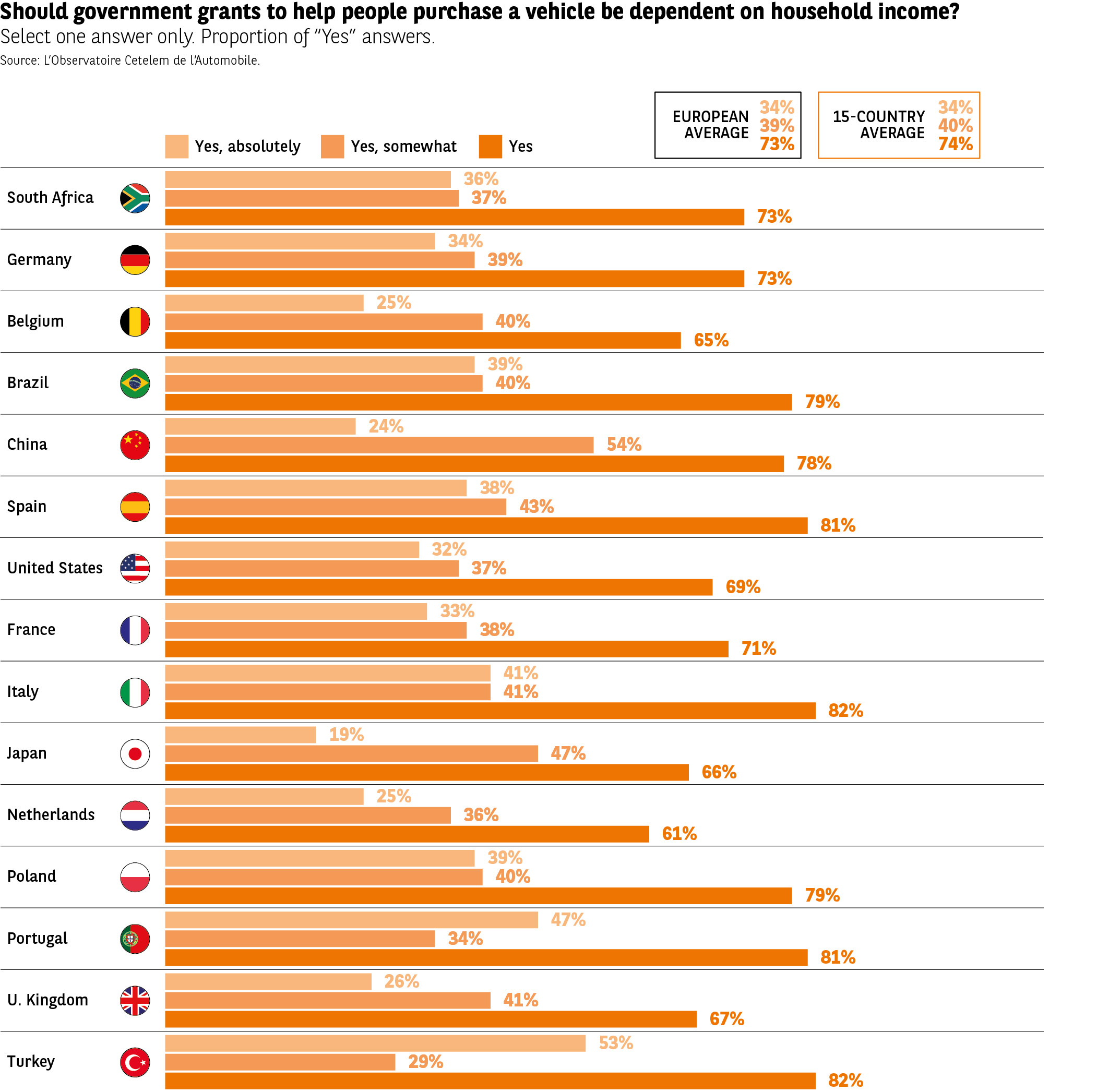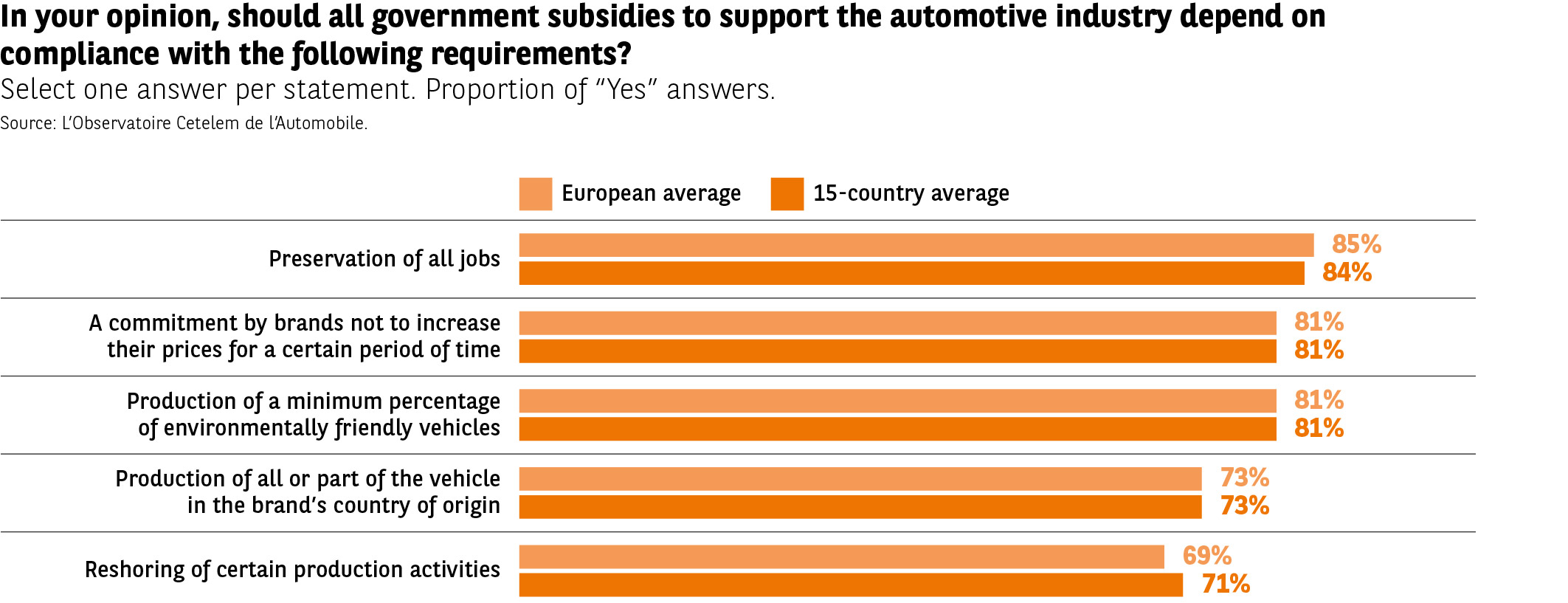Welcome government support


The support on offer must help the lowest-income households
The last figure cited, which urges local and national authorities to be proactive, illustrates the desire for governments to play an active role in promoting the automotive industry and enhancing its profile.
This is also something they can achieve by offering support to the lowest-income households in the form of grants. 3 in 4 people would be in favour of such an initiative, with essentially the same countries voicing this opinion, i.e., the Mediterranean and emerging nations (Fig. 42). The proportion who are very much in favour exceeds 50% in Turkey, where motorists still have fond memories of the support granted in 2019.
It is not surprising to see that the lowest-income households are the most likely to consider such a measure to be positive.
Priority given to the economy, the environment and localism
More broadly, with the health crisis having profoundly affected the automotive sector, the idea that governments should provide support and implement far-reaching measures is in no way being called into question. But there is a desire to see some sort of pact between governments and manufacturers that would see support from the former conditioned on the latter’s compliance with certain requirements.
The most popular requirement is that all jobs be protected. 84% of people are in favour of such a measure (Fig. 43). This underlines the fact that they are fully aware of the economic and social importance of the car industry. The second most popular requirement in this list confirms this feeling. Indeed, 81% of respondents would like to see brands commit to not increasing their prices.
This does not mean that environmental preservation has been forgotten. Again, 81% of those surveyed would like this to be among the factors on which financial support hinges.
Industrial nationalism is also on the agenda, with reshoring returning to the forefront of the conversation during the COVID-19 crisis. 73% would like vehicles to be manufactured wholly or partially in their home country. 71% would like to see the reshoring of certain production activities.
France posts the highest scores on all of these questions. Interestingly, in the United States, which is less Keynesian and more economically liberal, the figures are also very high.


